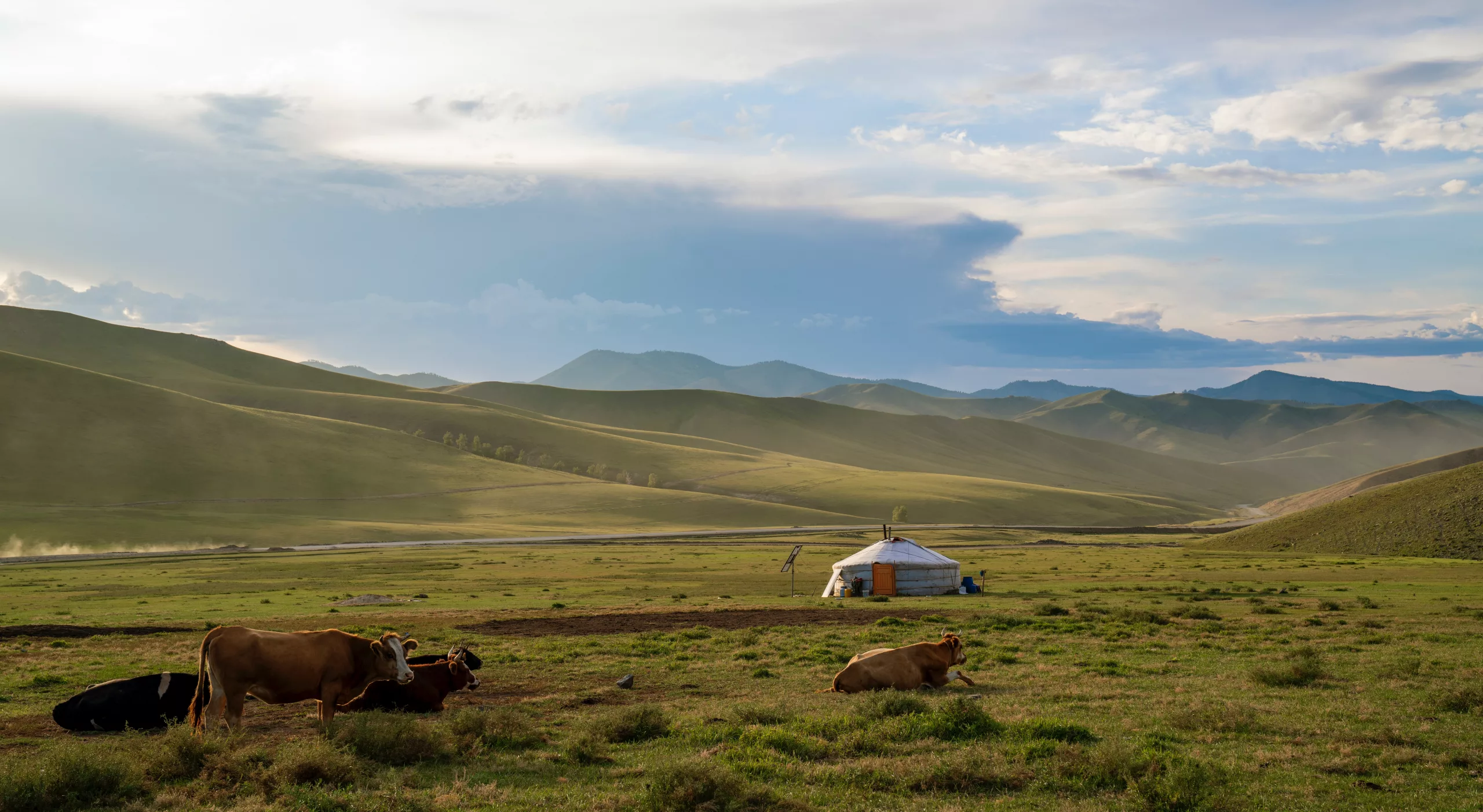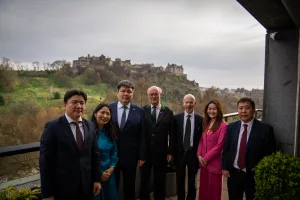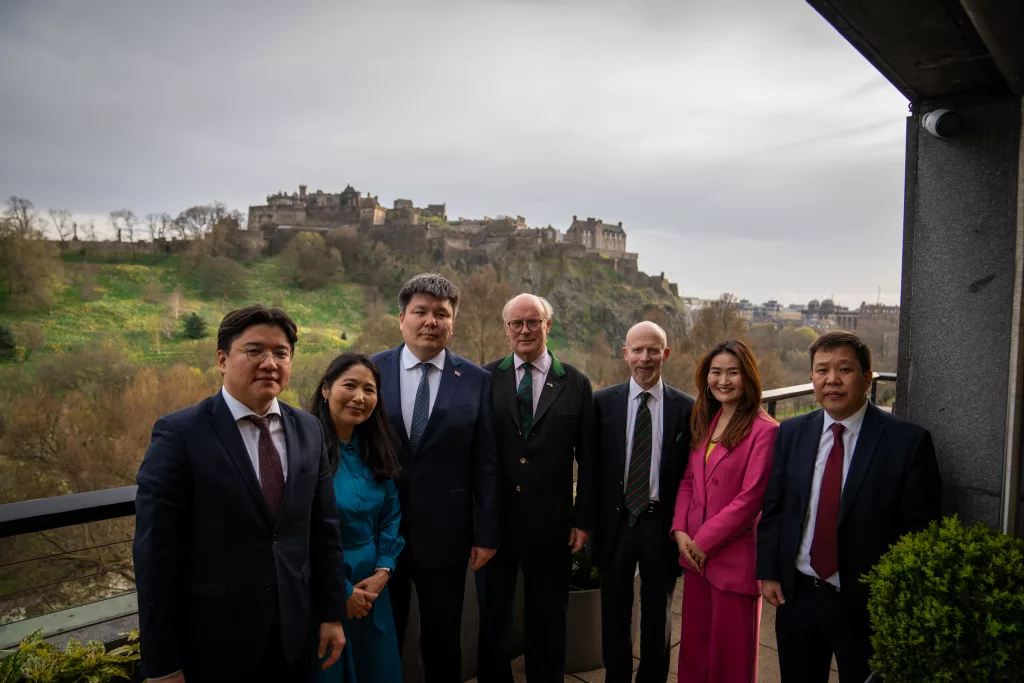What does life in Mongolia sound like? What are the roles of sound and music? Ethnomusicologists continue to explore the topic (see, for instance, Mongolian Sound Worlds and The Contemporary Soundscape of Nomadic Mongolia), while a number of studies over the past decades have tried to understand the impacts of sound and music on human wellness (e.g. Rickard & McFerran 2012). Soundscape ecologist Bryan Pijanowski and his colleagues (2011) posit that ‘as with other natural resources, natural and unique soundscapes have many associated human ideals, such as cultural, sense of place, recreational, therapeutic, educational, research, artistic, and aesthetic values’. This post is a glimpse into the soundscapes and music of the Mongolian capital and countryside as narrated by a local, Bayaraa, that will hopefully give some insight into these connections.
Bayaraa grew up in one of Mongolia’s western provinces, Zavkhan. Even after relocating to the capital with his family in early childhood, he continued to visit his grandmother every summer. ‘Memories of my grandmother’ (2021), a video on his YouTube channel Real Mongolia, captures the sounds he remembers in her ger (yurt) in the countryside:
You can hear your siblings giggling and your parents whispering in their bed. Your goats chewing and wolves howling in the distance. It was hard for me to get used to it when I first visited my grandmother’s. She was a nomadic pastoral herder in the western province of Mongolia. My sister and I used to spend our summer holidays there. I couldn’t sleep because of all the noises. And then, after a while, these noises became my lullaby.
His initial experience of ‘noise’ (which is usually associated with disturbance and unpleasantness) in the ger quickly transitions into a melodic one.
I used that phrase because a long time ago, I read a book about a reindeer herder in Siberia. It’s about a young boy who visited a reindeer herder’s camp for the first time … because of the sea noise, he couldn’t sleep the first night. And he wrote that after a few days, the waves – the sound of the sea – turn into his lullaby … A similar thing happened to me because when I visited my grandmother’s, there was so much going on inside and outside the ger … You are separated from the outside world just by this thin felt so you can hear everything that’s going on outside – the animals grazing, the dogs barking, winds howling – everything … also inside the ger, everybody’s together [and] talking … everything’s going on at the same time.
He explains that after a few days, one gets accustomed to the sounds. ‘You know what’s going on outside, you know what animal’s making what noise’ and you start to feel ‘calm’, ‘safe’ and ‘comfortable’. In the Mongolian language, he continues, the term lullaby (бүүвэй: buuvei) originated from the words ‘don’t be afraid’ (бүү ай: buu ai). He also mentions soundscapes induced by human activity: his grandmother’s simmering soup, crackling of wood, speech and laughter.
Seira: You said you sometimes went out with the animals. What kind of sounds did you hear outside the ger?
Bayaraa: Ah – you need to go far away form where you live because all the areas near your ger have already been grazed so there’s no grass. You have to go far away from your ger, over the mountains, over the hills; that’s when you are completely alone. The noise you hear when you are with your animals are the goats and sheep just plucking the grass. Especially the sheep – they make this strong sound, they chew it. Other than animals, it’s really quiet and peaceful. That’s where you just feel completely alone in this vast grassland.
Seira: What do you think that does to someone, being out in the steppes, so far away where it’s quiet and peaceful?
Bayaraa: Very peaceful. You never get that feeling in the city. It’s the kind of feeling you can only get in the countryside, in the steppes.
As a young child, he did not appreciate the ‘peaceful environment’ the way he does now. He visited his grandmother with his sister every year until her passing. Due to the distance and his work (it takes days to reach Zavkhan by car), he does not visit the countryside often. I asked him whether there were sounds that made him feel nostalgic. He replied:
When a horse is running, it hits the ground with its hooves [taps fingers on a table]; that kind of noise, you can only hear in the countryside. Especially when you are in the ger, you can always tell when someone is coming because you can hear their horse running. First, it’s really quiet, and when they get closer, the sound gets loud and the horse stops. You can almost hear every movement they make. The horse stopping, someone dismounting a horse, dogs barking, footsteps … Also the crackling sound of firewood is really unique … One sound you can only hear in the countryside is raindrops hitting the outside of the ger … Now when I look back at those times, I appreciate the freedom, peacefulness and tranquility of those times … in the city it’s hustle-bustle, all the noise, traffic, stressful traffic jams … I appreciate how simple and peaceful it was.
According to Bayaraa, the sound of raindrops in the countryside is distinct because the gers are made of felt; while there are gers in the capital, plastic wrappers are often used on the outside to prevent leaking, resulting in a different sound. Despite his fond memories of the soundscapes of the countryside, he acknowledges the conveniences (e.g. water and electricity) that come with anchoring himself in Ulaanbaatar.
His channel documents the annually-held Naadam festival which celebrates their nomadic culture and is the country’s ‘largest gathering’. Bayaraa explains that at the festival, one hears the traditional horseheld fiddles (морин хуур: morin huur) and long songs (уртын дуу: urtiin duu), ‘the kind of songs you’d sing when you’re riding a horse in this vast landscape’ alongside modern pop songs. On whether visiting the countryside throughout his childhood years impacted him, he reflects that it made him understand the hardships nomadic herders encounter and made him ‘prouder to be Mongolian’.
Seira: Do you think it had an influence on your decision to start your YouTube channel?
Bayaraa: Definitely. Definitely. I wanted to show the ‘real Mongolia – that’s why I chose this name]. The purpose of my channel is to dive deep into Mongolia and show, in depth, how Mongolians live. It definitely influenced me to start my channel … the time I spent in the countryside with my grandmother helped shape my personality, my character. I am who I am today because of those experiences: a modern Mongolian who is proud of his roots. Someone who wants others to see the beauty and preciousness of a simple and peaceful life in the countryside of Mongolia.







